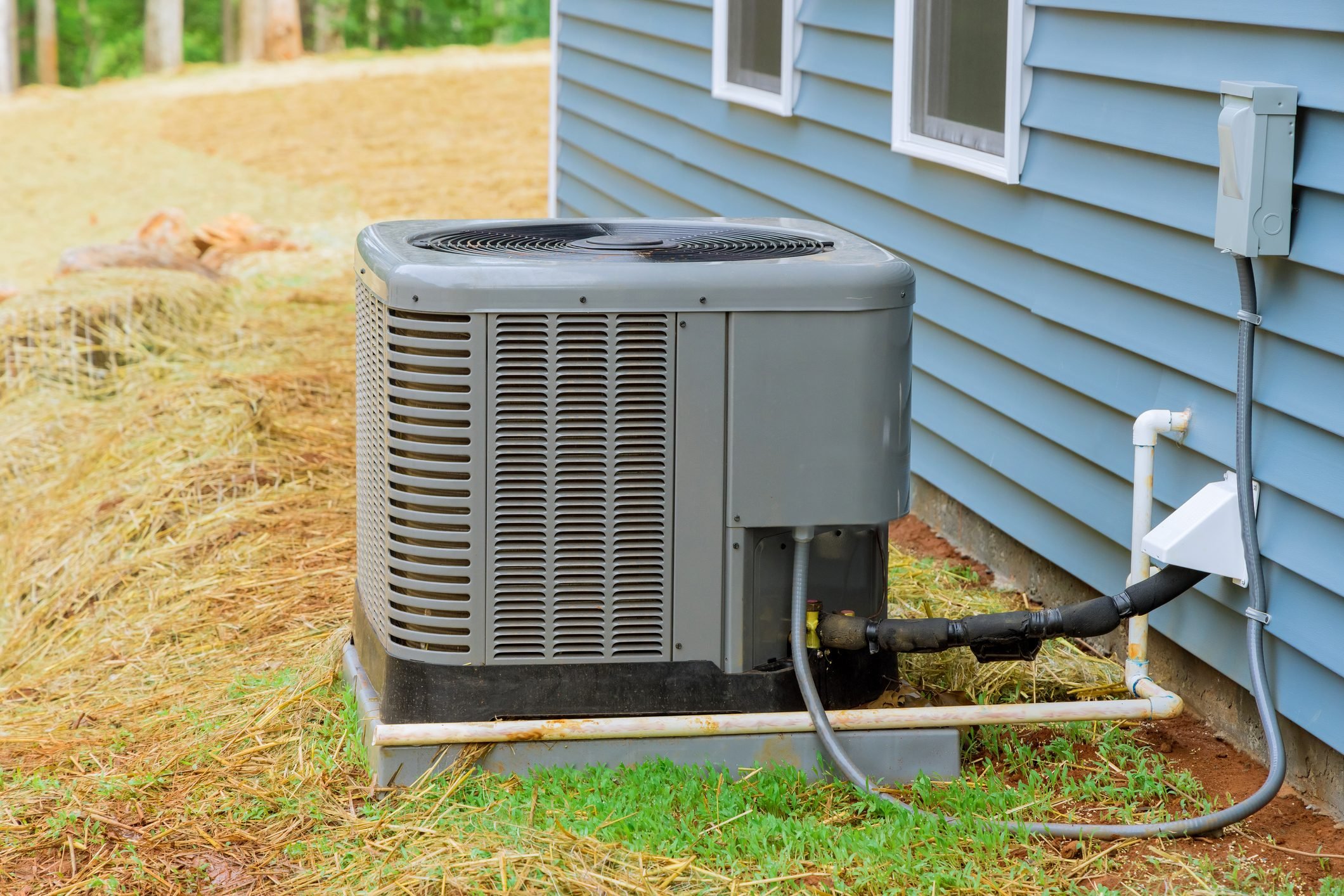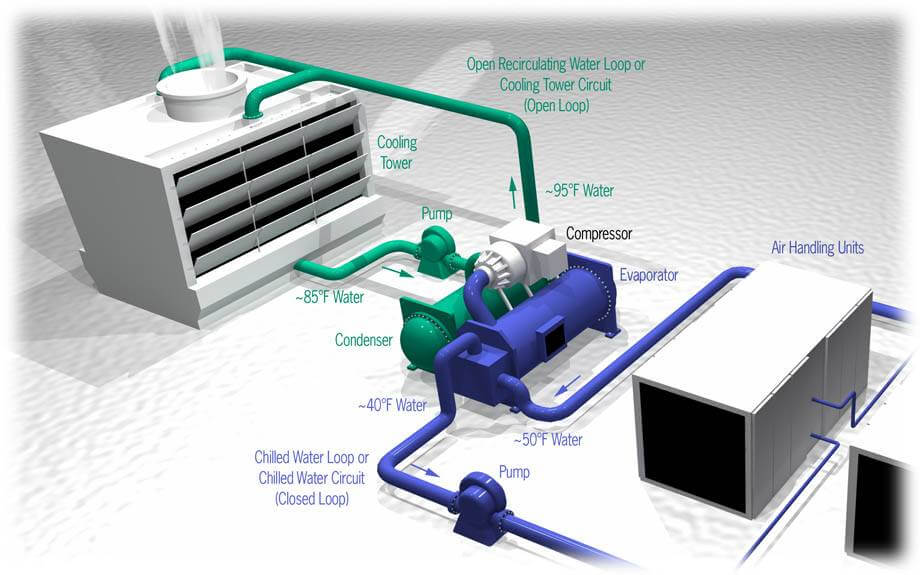Understanding the Different Kinds Of Cooling And Heating System for Optimal Performance
Comprehending the different kinds of cooling and heating systems is essential for home owners aiming to enhance comfort and energy effectiveness. Central air conditioning systems supply consistent temperature control, while ductless mini-split systems use adaptability. Heatpump supply reliable year-round environment monitoring. For smaller sized rooms, home window and mobile a/c act as functional options. Geothermal systems use constant underground temperatures for sustainable heating and air conditioning. Each alternative holds special advantages, motivating a better assessment of which may suit individual demands best.
Air Conditioning Equipments
Several house owners seek ways to enhance interior comfort, understanding main air conditioning systems is crucial for efficient environment control. Central air runs by flowing cool air via a system of air ducts, distributing it evenly throughout the home. This sort of system contains a number of essential components, including an outside compressor, an interior evaporator coil, and a network of ductwork.
The compressor cools cooling agent, which after that absorbs warm from indoor air as it travels through the evaporator coil. This cooled air is pressed via the ducts and right into living spaces, assuring a consistent temperature level. Central air systems are recognized for their efficiency, often using programmable thermostats to maximize energy usage. Normal maintenance, such as filter adjustments and system checks, is vital to assure longevity and performance. Recognizing these components helps house owners make informed decisions concerning setup and maintenance, ultimately improving convenience and power efficiency in their homes.

Ductless Mini-Split Solutions
Ductless mini-split systems supply a versatile option to traditional central air conditioning, satisfying property owners looking for effective environment control without the need for extensive ductwork. These systems contain an outside compressor device and several indoor air-handling units, enabling targeted cooling and heating in specific areas or rooms. This zoning capability enhances comfort by allowing individuals to change temperature levels based upon specific choices, inevitably leading to energy savings.
Setup is typically easier and less invasive compared to ducted systems, which can be useful for older homes or areas with limited structural modifications. Additionally, ductless mini-split systems frequently feature energy-efficient modern technologies, such as inverter-driven compressors, which optimize power intake based upon demand. Their small design also allows for numerous positioning choices, making them suitable for tight or non-traditional rooms. Therefore, ductless mini-split systems have actually gotten popularity among home owners seeking contemporary, efficient heating and cooling solutions.
Warmth Pumps
Heatpump represent a versatile and energy-efficient choice for both heating and cooling down property spaces. These systems run by moving heat instead than producing it, making them particularly reliable in moderate environments. During warmer months, heatpump remove heat from inside and launch it outside, providing air conditioning. Conversely, in winter months, they reverse this process, attracting warm from the outside air or ground to warm up the interior.
There are two primary kinds of heat pumps: air-source and ground-source (or geothermal) Air-source warmth pumps are more typical due to their easier setup and reduced initial expense, while ground-source versions boast higher effectiveness and security in performance. Furthermore, heatpump can especially reduce energy expenses and carbon impacts when compared to conventional home heating approaches, making them an environment-friendly selection. In general, heat pumps stand as a compelling remedy for house owners looking for reliable environment control throughout the year.
Window and Portable Air Conditioners

On the various other hand, mobile ac unit offer flexibility, as they can be quickly moved from space to room. These Get the facts units usually need a venting kit to exhaust warm air via a home window, yet they supply a convenient option for temporary cooling needs.
Both sorts of air conditioning unit are suitable for renters and those seeking to avoid comprehensive setup processes. Customers must think about aspects such as BTU capability, energy effectiveness ratings, and noise degrees when picking an unit to assure peak efficiency for their certain room and cooling requirements.
Geothermal Heating & Cooling Equipments
As energy efficiency becomes significantly crucial, geothermal cooling and heating systems have acquired popularity for their lasting technique to climate control. These systems utilize the secure temperature levels discovered below ground to supply heating in winter and air conditioning in summertime. By utilizing the earth's all-natural thermal energy, geothermal systems considerably lower reliance on fossil fuels and lower energy expenses.

In addition, geothermal systems normally require much less maintenance contrasted to conventional HVAC systems, leading to long-lasting cost savings - HVAC experts. With raising recognition of climate adjustment, these systems represent a forward-thinking option for those looking for environmentally friendly and reliable heating and cooling choices
Regularly Asked Questions
Exactly how Often Should I Service My A/c System?
A/c systems must ideally be serviced twice a year, once in the springtime and as soon as in the autumn. Routine maintenance helps assure performance, lengthens lifespan, and stops costly break downs during top usage seasons.
What Size Heating And Cooling System Do I Need for My Home?
Determining the ideal dimension for a cooling and heating system needs calculating the home's square footage, insulation top quality, and climate. A professional analysis assurances maximum performance, comfort, and energy HVAC experts financial savings customized to the certain requirements of the house.
Can I Set Up a Heating And Cooling System Myself?
Installing a cooling and heating system separately is possible, however it requires technological knowledge and abilities. Mistakes can bring about inadequacy or security threats, so getting in touch with an expert is typically recommended to ensure proper setup and conformity with laws.
What Are the Indications My HVAC System Demands Repair?
Indicators that a heating and cooling system needs repair service consist of uncommon sounds, inconsistent temperature levels, raised energy bills, undesirable smells, and regular cycling. Motivate focus to these signs can avoid further damages and assurance peak system efficiency.
Exactly How Can I Improve My HVAC System's Power Efficiency?
To boost a/c energy performance, one ought to routinely replace filters, seal air ducts, install a programmable thermostat, warranty proper insulation, and timetable routine upkeep checks. HVAC experts. These activities collectively boost performance while lowering power intake and expenses
Central air conditioning systems offer consistent temperature control, while ductless mini-split systems provide adaptability. Central air conditioning operates by flowing amazing air via a system of ducts, dispersing it equally throughout the home. Central air conditioning systems are understood for their efficiency, usually utilizing programmable thermostats to maximize power use. Ductless mini-split systems use an adaptable alternative to typical main air conditioning, catering to house owners looking for efficient climate control without the need for comprehensive ductwork. Geothermal systems commonly call for less maintenance compared to standard HVAC systems, resulting in long-term cost savings.